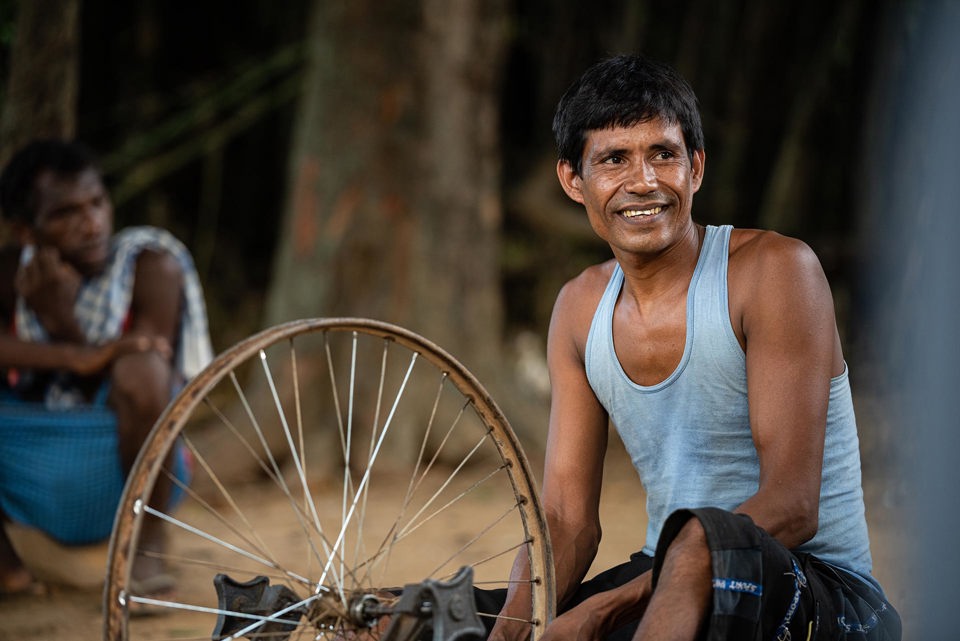Biru's story, India
As a person with a disability living in remote India, Biru faced the prospect of a life of poverty and discrimination. With your support, he participated in entrepreneurship training and gained the skills to become financially independent.

Biru is seen working at his bicycle repair shop outside his home in his village in the state of Jharkhand, India. Photo: Sameer Bara/Caritas Australia

Biru and his wife Budhni sit with their children outside their house in their village in the state of Jharkhand, India. Photo: Sameer Bara/Caritas Australia
Biru lives in a rural village in India.
He lost mobility in one of his legs, after contracting polio as a child, which makes it difficult for him to walk. He managed to complete his education until grade six but was always dependent on his parents to get him to school because he was unable to walk so far on his own.
A member of India’s Ho ethnic minority population, Biru started to work as a shepherd from a young age, looking after other people’s cattle. He continued this work, after he married his wife, Budhni, and had four daughters, even though keeping up with the cattle was a challenge.
Over 26 million people who have a disability in India also live in poverty. A further 69 percent of the population living with a disability reside in rural areas, which makes access to support services, education and employment an even greater challenge.
"Looking at others who did not have a disability, I wondered what it was like to be them. I was wondering how to look after my family."

Biru taught himself how to repair bicycles by watching other people, but he never dreamed of using those skills to start his own business. With your generous support, Biru was able to access an entrepreneurship and livelihoods training program, run by Caritas Australia’s partner, Caritas India.
He gained the support and skills he needed to establish his own bicycle repair business. Participating in the program also helped Biru to apply for government disability and housing schemes.
Now, Biru is financially independent and can forge a path out of poverty for his four young daughters. He is a respected and essential member of his community, working as a bicycle and motorcycle mechanic to keep his neighbours, friends and families safe on the road. His resilience and determination to overcome the odds has inspired others in his community who are living with a disability to become independent and self-reliant.

Biru is seen working at his bicycle repair shop outside his home in his village in the state of Jharkhand, India. Photo: Sameer Bara/Caritas Australia
Your generous support today can help people like Biru to create change now – and for all future generations.
Along with your generous support, this program is also supported by the Australian Government, through Australian NGO Cooperation Program (ANCP).
Your donation can help

Biru is seen at a field where he used to graze cattle before setting up his bicycle repair shop in his village in the state of Jharkhand, India. Photo: Sameer Bara/Caritas Australia
Increase income for vulnerable communities

Biru with family members and neighbours at his bicycle repair shop outside his home in his village in the state of Jharkhand, India. Photo: Sameer Bara/Caritas Australia.
Raise community awareness about disability rights

Biru is seen working at his bicycle repair shop outside his home in his village in the state of Jharkhand, India. Photo: Sameer Bara/Caritas Australia
Support entrepreneurship training












